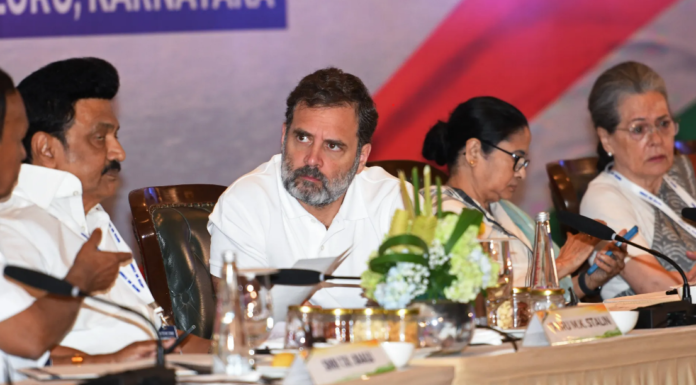The INDIA bloc, a coalition of opposition parties, is set to hold a high-stakes meeting in January, following the conclusion of the current Parliament session. This gathering, the first since the Lok Sabha election results and Congress’ losses in Haryana and Maharashtra, is expected to serve as a platform to reassess the bloc’s strategy against the BJP while addressing a critical internal issue: the appointment of its convenor.
Several prominent leaders, including those from the Trinamool Congress (TMC), Rashtriya Janata Dal (RJD), Nationalist Congress Party (NCP), Aam Aadmi Party (AAP), and Samajwadi Party (SP), have backed TMC supremo Mamata Banerjee for the convenor’s role. TMC MP Sushmita Dev emphasized Banerjee’s qualifications, stating, “Mamata Banerjee is a seven-term MP, four-time Union minister, and a serving three-time chief minister poised for a fourth term. Her governance record and ability to defeat the BJP comprehensively make her an ideal choice.”
However, the Congress party remains opposed to Banerjee’s candidacy. Party insiders revealed that during a recent meeting with Congress MPs, Rahul Gandhi expressed concerns about ceding space within the bloc to other parties. Gandhi asserted that the Congress, which he claims has maintained an uncompromising stance against the BJP, is the natural leader of the opposition alliance.
Congress has proposed Rahul Gandhi as the leader of the INDIA bloc, arguing that his campaigns elicit strong reactions from the BJP and resonate with voters. The party attributes its recent electoral setbacks to systemic issues within the electoral process rather than failures of leadership. Furthermore, Congress leaders have questioned Banerjee’s past interactions with the BJP, suggesting that her appointment could tarnish the bloc’s image as a unified anti-BJP front.
The upcoming January meeting is expected to feature intense discussions on leadership dynamics, overshadowing the bloc’s broader agenda of challenging the BJP in key state elections, including those in Delhi and Bihar. Critics argue that this internal discord risks undermining the bloc’s mission and credibility ahead of crucial polls.
The INDIA bloc’s inability to agree on a leadership structure highlights deeper fissures within the opposition. While the coalition’s formation was initially seen as a significant step toward countering the BJP’s dominance, the struggle for leadership could dilute its impact. The question of who will helm the bloc remains pivotal, as the chosen leader will shape the opposition’s narrative and strategy in the lead-up to the 2024 general elections.
As the clock ticks toward the January meeting, all eyes will be on whether the INDIA bloc can resolve its internal conflicts and present a united front against the BJP. For now, the convenor debate looms large, with its outcome set to significantly influence the alliance’s future trajectory.



